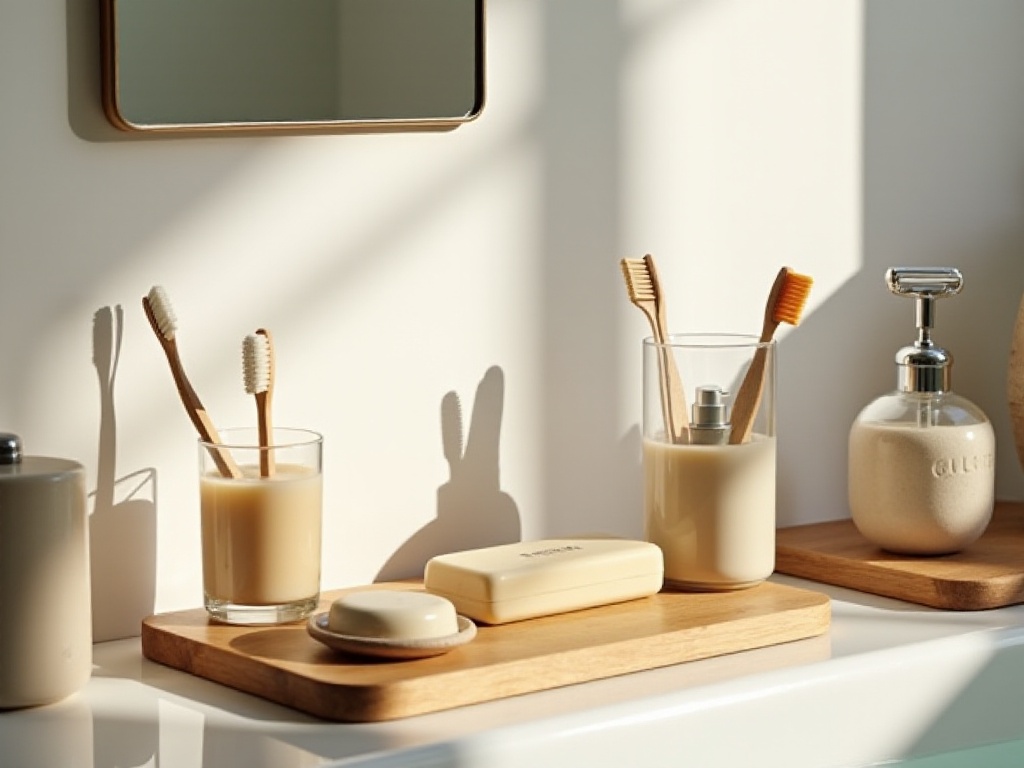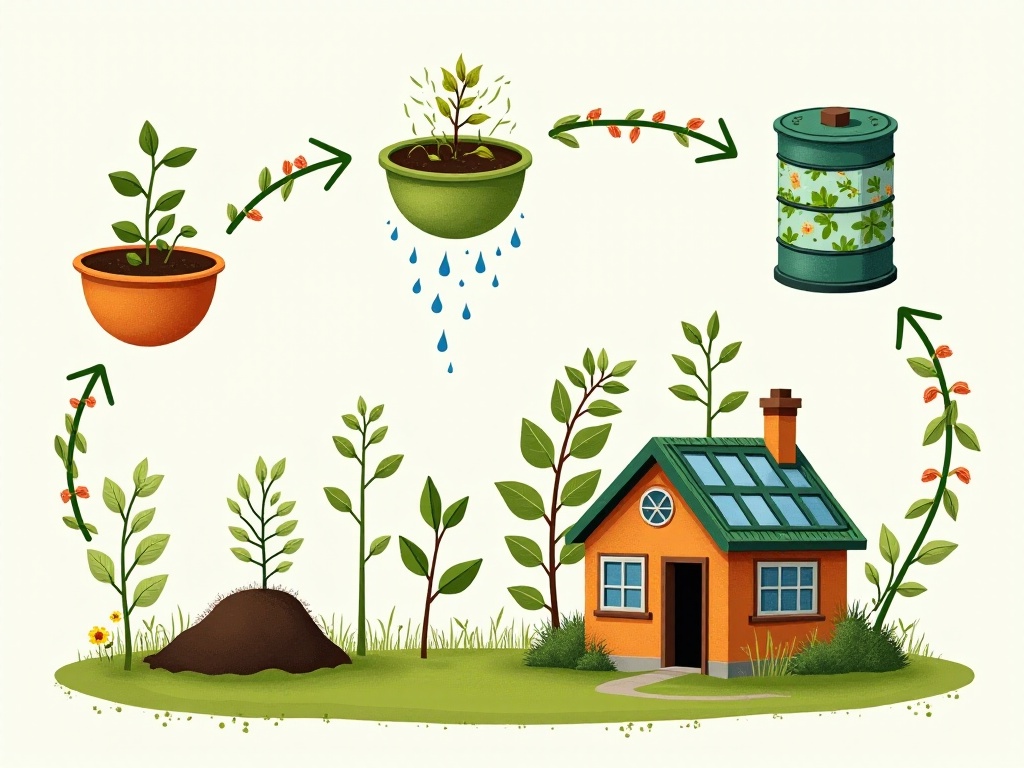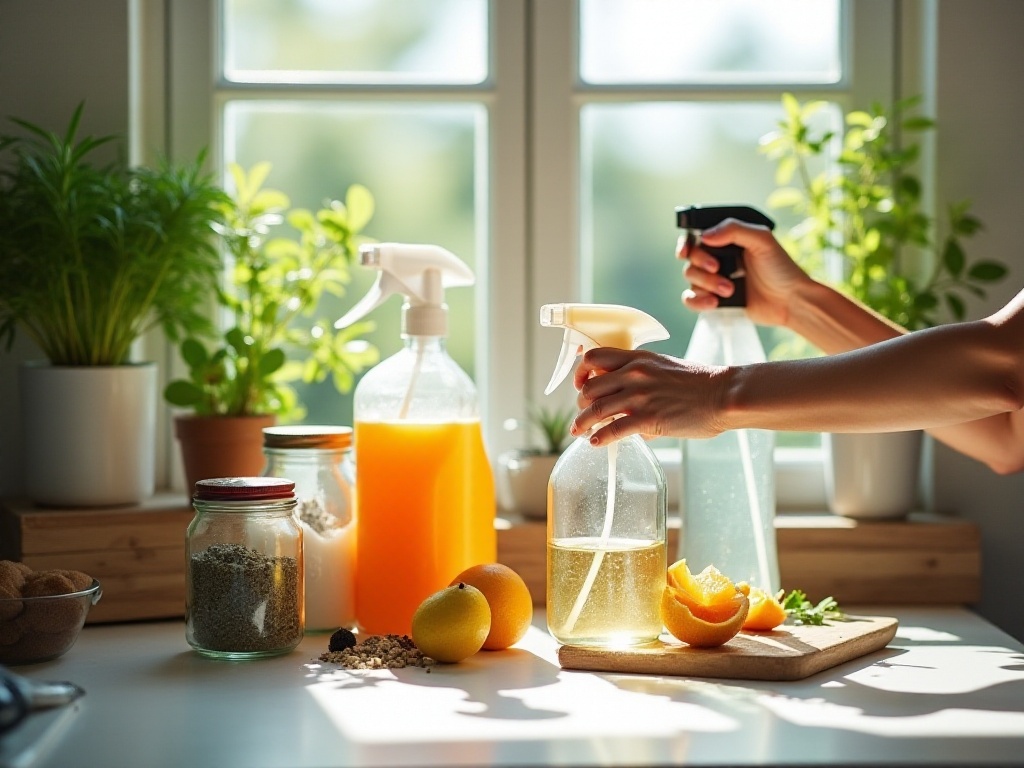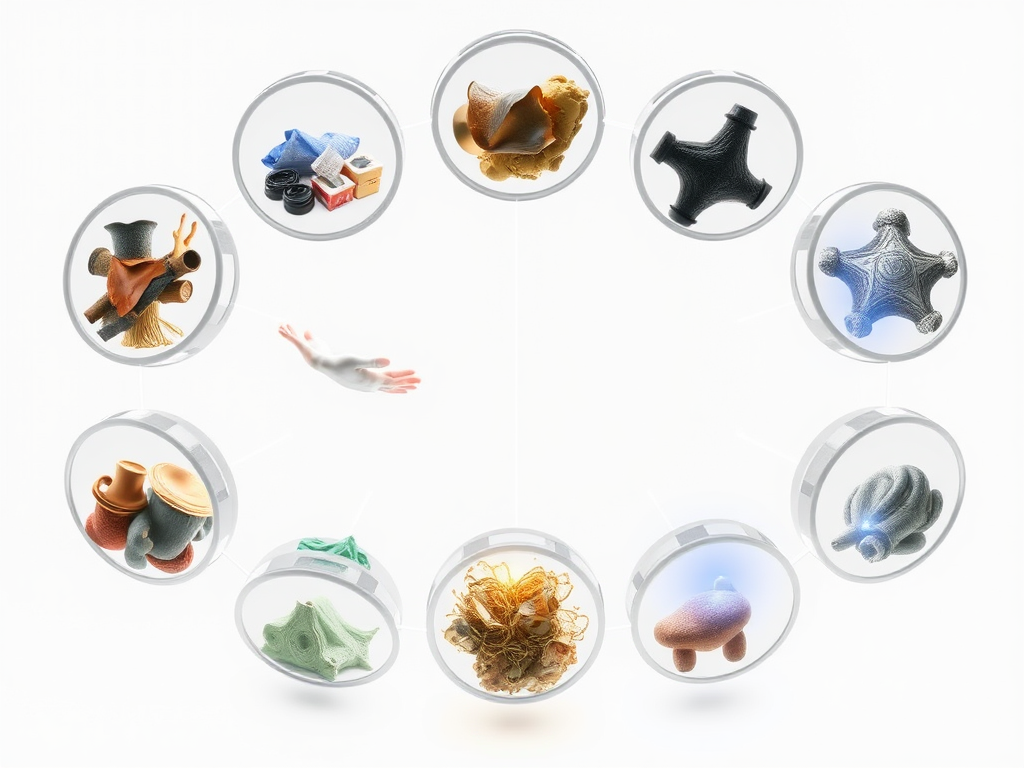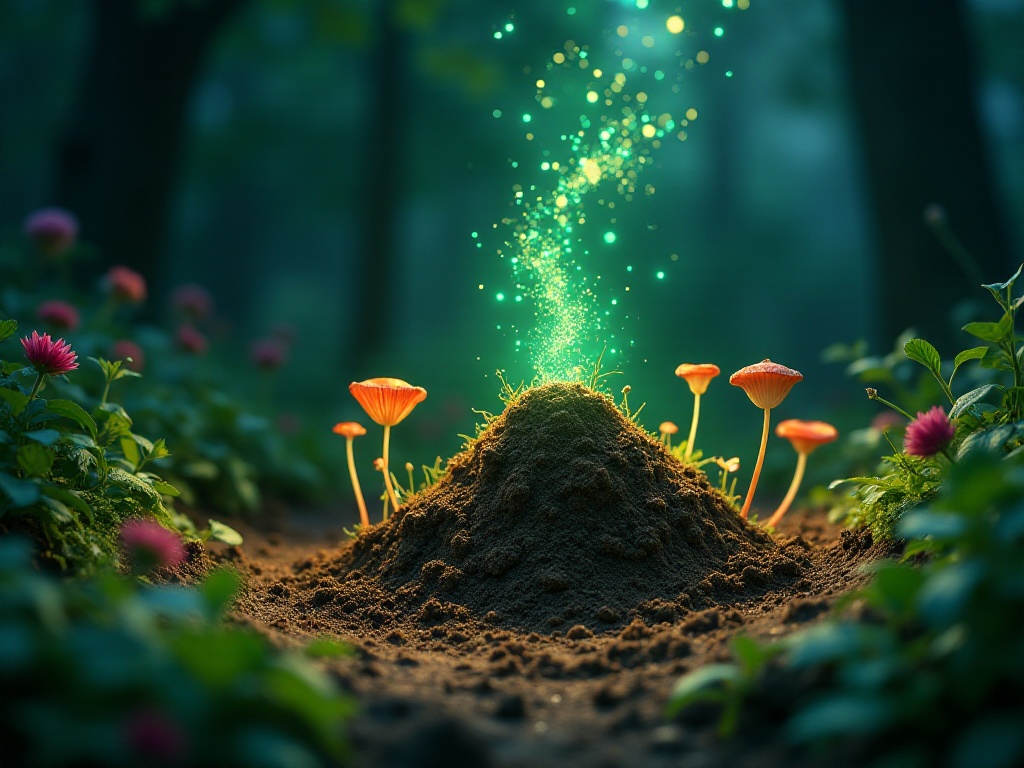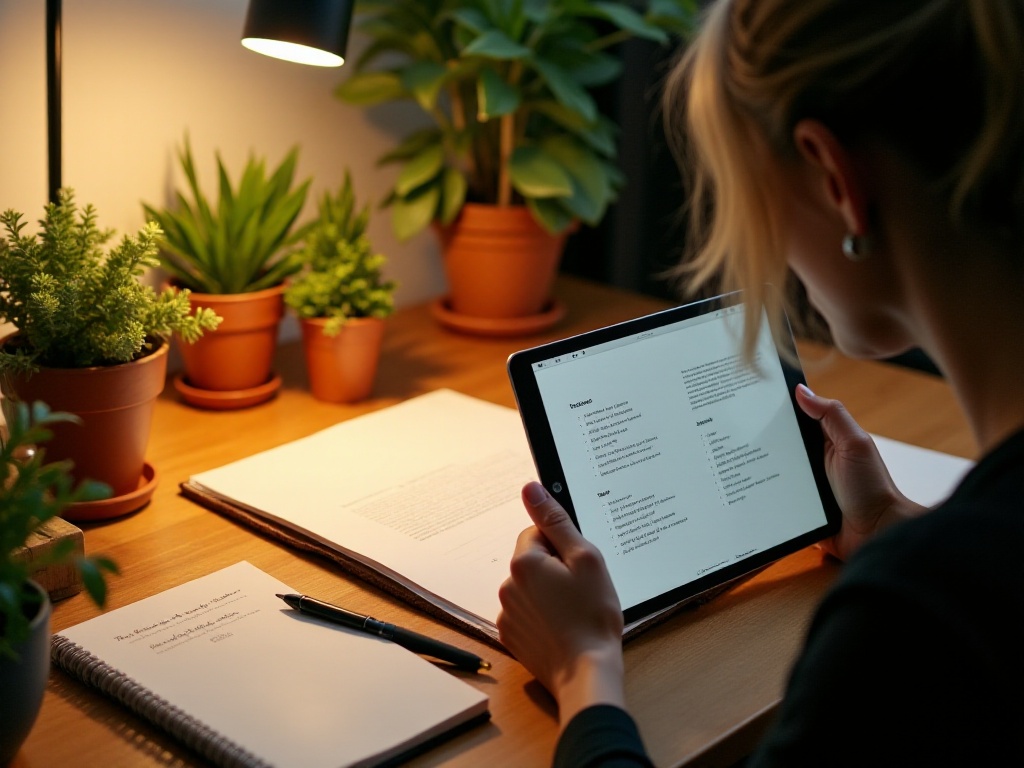The First Awakening
Have you, like me, never seriously thought about how much waste you generate each day? Until one day, I had a sudden idea to start tracking my waste output. To be honest, this decision completely changed the trajectory of my life. For an entire week, I carefully recorded everything I threw away. The results truly scared me - just one person, I was filling up a medium-sized garbage bag every day!
What shocked me even more was the composition of the waste. Plastic packaging was the absolute "ruler" of the waste kingdom, accounting for nearly 70%. Think about it - what does this mean? We buy a bottle of water, drink it, and throw it away; buy snacks, eat them, and throw away the packaging; receive online purchases, unpack them, and throw away the wrapping. These plastic packages might fulfill their "mission" in just a few minutes, but they'll exist on Earth for hundreds of years.
Food waste made up about 25%, an equally alarming figure. Leftover meals, expired ingredients, spoiled fruits and vegetables... all this food that could have been fully utilized, just wasted. The remaining 5% was miscellaneous items, from used tissues to broken small objects.
Looking at these numbers every day made me increasingly uneasy. I started reflecting on my daily life: buying morning coffee in disposable cups with plastic lids; ordering takeout with disposable utensils; opening online shopping packages with layers of wrapping at night. This isn't living - it's just generating waste! Is this lifestyle really right? Isn't there a better way?
Understanding Zero Waste
Just as I was worrying about my waste output, I came across the term "zero waste living" on social media. Honestly, when I first saw the term, I almost laughed. Zero waste? In modern society, isn't that just a fantasy? But out of curiosity, I clicked to learn more.
This one click completely transformed my understanding of life. It turns out that zero waste doesn't mean producing absolutely no waste, but rather a philosophy and attitude toward living. It teaches us that by changing our habits and consumption patterns, we can significantly reduce our waste generation.
Zero waste living has five core principles: Refuse, Reduce, Reuse, Recycle, and Rot (compost). These five seemingly simple words contain profound environmental wisdom. Refuse means learning to say no to unnecessary consumption; Reduce means lowering consumption of necessities; Reuse means extending the lifespan of items as much as possible; Recycle means returning items to the循环系统; and Rot means letting organic waste return to nature.
After understanding these concepts, I started searching for related information online and joined several zero waste living groups. The members shared many practical experiences and tips. Some had been living zero waste for several years, with their household waste becoming almost negligible. Looking at their shares, I suddenly felt that zero waste living wasn't as unattainable as I had imagined.
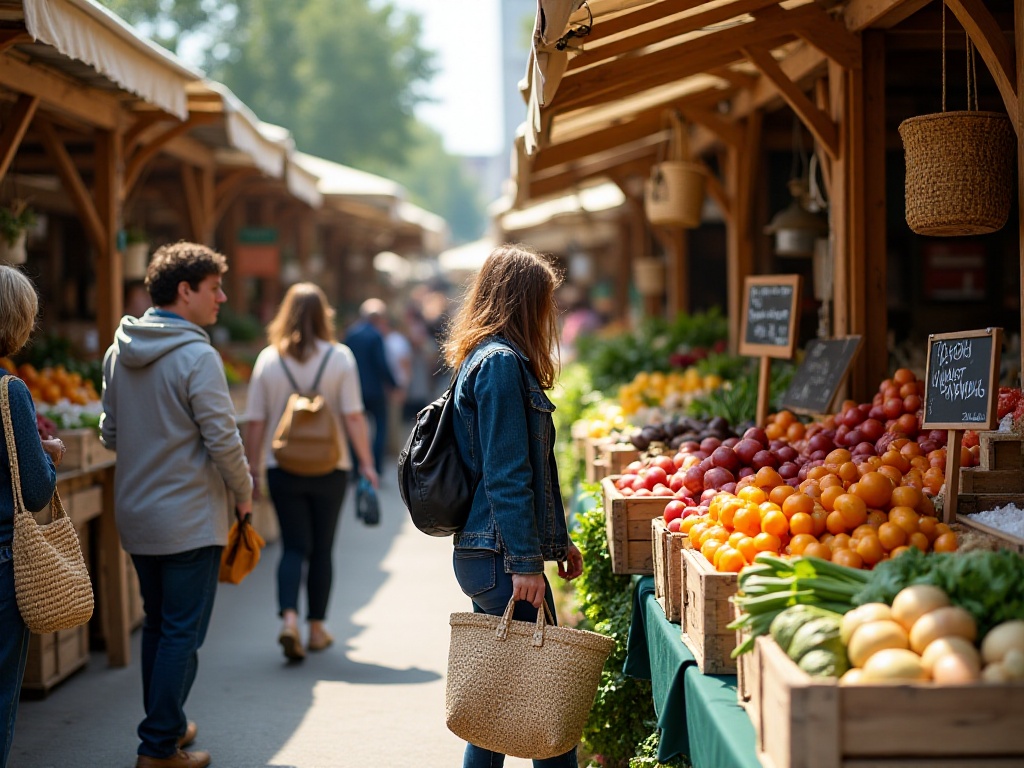
Starting with Shopping
The simplest entry point to zero waste living is daily shopping. Previously, I would casually grab plastic shopping bags at the supermarket, never thinking about their fate. Until one day, I saw a shocking statistic: an ordinary plastic shopping bag takes 500 years to fully decompose!
This number filled me with deep remorse. Think about it - we use these plastic bags for maybe 20 minutes, but they exist on Earth for 500 years. Even worse, these plastic bags eventually break down into microplastics, enter the food chain, and ultimately return to our bodies. This trade-off of momentary convenience for hundreds of years of consequences for the Earth and future generations just doesn't make sense.
So, I began my shopping bag revolution. First, I bought 5 sturdy canvas shopping bags. To avoid forgetting them, I created a "bag deployment plan": always keep a foldable shopping bag in my everyday bag for impromptu shopping; two large shopping bags in the car for big purchases; and two hanging by the front door as a reminder to take them when leaving.
When I first started this plan, I often forgot to bring shopping bags. Once at the supermarket, I only realized I had forgotten my bags after selecting all my items. I was really torn: should I buy a new plastic bag or abandon the shopping? Finally, I grudgingly went back home to get my bags. Although it took extra time, this experience deeply impressed upon me the importance of bringing shopping bags.
Gradually, bringing shopping bags became a habit. Every time I see others leaving the supermarket with plastic bags, I can't help wanting to tell them: just one small change can reduce so much burden on the Earth.
Next, I started trying to buy bulk foods. I remember the first time I brought glass jars to the supermarket to buy rice - I was so embarrassed I wanted to sink into the ground. The cashier looked confused, and nearby customers gave me strange looks. But I still mustered the courage to explain my environmental philosophy.
What touched me was how supportive the supermarket staff were of my approach. They actively helped me weigh containers and introduced me to more items available for bulk purchase. Now, I've become good friends with the supermarket staff, and they even tell me about items approaching their expiration dates, helping me save money while avoiding food waste.
Gradually, my shopping list also changed. Previously, I would buy whatever I saw, but now I carefully consider whether each item's packaging is environmentally friendly and whether I really need it. For example, when buying shampoo, I choose large containers or specifically look for refill stores. When buying fruits and vegetables, I try to choose loose items to avoid excessive packaging.
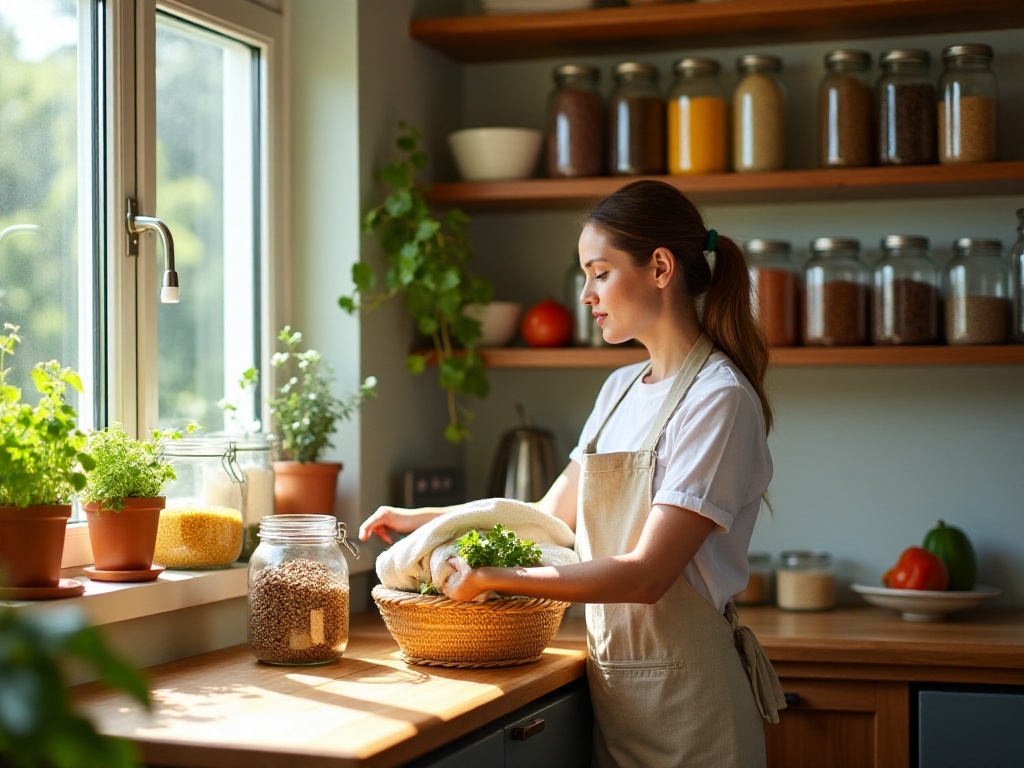
Kitchen Revolution
When it comes to waste production, the kitchen is definitely a "disaster area." I used to be a typical "refrigerator hoarder." Every time I went to the supermarket, I'd buy lots of ingredients, calling it "stocking up to save trouble." As a result, my refrigerator was always full of ingredients that often spoiled before I could use them.
Once, while cleaning my refrigerator and looking at the yellowed vegetables and moldy fruits, I suddenly realized: this isn't saving trouble at all - it's simply wasting money and resources! Moreover, all this wasted food ultimately became garbage, creating an additional burden on the environment.
So, I started trying meal planning. Every Sunday afternoon, I spend about half an hour planning the next week's menu. This process isn't particularly difficult - it just requires considering three points: nutritional balance, ingredient compatibility, and expiration dates.
For example, if I plan to make stir-fried pork with green peppers on Monday, the remaining peppers can be used for a vegetable stir-fry on Tuesday; purchased pork can be divided into several portions for different dishes each day. This ensures ingredients stay fresh and prevents meal fatigue.
With a plan in place, shopping became very targeted. I would make detailed shopping lists based on the menu, including specific quantities needed for each ingredient. This not only prevents buying too much or too little but also saves shopping time.
The effects of this change exceeded my expectations. First, kitchen waste significantly decreased because every ingredient was fully utilized. Second, it saved money - according to my accounting, this change alone saves about 300 yuan per month in ingredient costs. Most importantly, because of the planning, I no longer have to struggle with the age-old question of "what should I eat today?"
Besides meal planning, I also started composting. I began with a small compost bin on the balcony to process fruit peels, vegetable leaves, and other kitchen waste. Honestly, I was worried about odors at first, but following the correct methods, I found this wasn't an issue at all.
After two months of composting, I harvested my first batch of organic fertilizer. The potted plants grown with this fertilizer thrived, and thinking about how these plants grew from "waste turned to treasure" gives me a special sense of achievement.
Personal Care Transformation
Speaking of waste, skincare and cosmetic packaging is also a major issue. I remember counting my skincare and cosmetic products while cleaning the bathroom last year - there were over 30 items! Each one had plastic packaging that could only be thrown away after use. Worse still, most of these packages couldn't be recycled.
I started reconsidering my skincare habits: Do I really need so many products? Is each product actually serving a purpose? After careful observation and screening, I reduced my skincare products to fewer than 5 items: facial cleanser, toner, serum, moisturizer, and sunscreen. When choosing products, I now prioritize brands that offer refillable containers.
This change not only made my bathroom neater, but my skin condition actually improved. It turns out that skincare isn't about using more products - finding suitable basic care is the key.
Besides reducing product quantity, I also learned to make some skincare products myself. For example, I make natural face masks using fresh cucumber or honey with oatmeal. I can also mix hand cream using natural shea butter and essential oils with great results.
At first, making skincare products seemed especially troublesome, but gradually I found joy in it. These natural products contain no preservatives or additives and are particularly gentle on the skin. They're also much more cost-effective - hand cream expenses dropped from about 80 yuan per month to around 15 yuan.
Regarding cosmetics, I also made significant changes. I used to think cosmetics needed constant updating, but now I focus more on practicality. For example, I only keep three most-used lipstick colors and just one basic eyeshadow palette. This not only reduces packaging waste but also prevents products from expiring.
Wardrobe Organization
When it comes to waste, clothing might be an overlooked focus for many people. I remember being shocked the first time I thoroughly cleaned my closet. 40% of my clothes were "sleeping beauties" - bought but never worn for an entire year!
Among these clothes were impulse purchases, items bought because they were cheap, and "trending" pieces bought on a whim. They not only occupied valuable storage space but also wasted enormous resources. Consider that making an ordinary T-shirt requires 2,700 liters of water - equivalent to one person's drinking water for 10 days.
So, I decided to start a wardrobe revolution. First came the big cleanup - I sorted all clothes into four categories: frequently worn, occasionally worn, rarely worn, and never worn. Then I evaluated each piece: Does it fit? Does it match my style? Is it easy to coordinate? Finally, I steeled myself to send all those never or rarely worn clothes to the second-hand market.
After cleaning, my clothing quantity decreased by 60%, but putting together outfits actually became easier. Because what remained were versatile basics that coordinated well with anything. And with fewer clothes, I actually cherish each piece more, taking better care to extend their lifespan.
Now when buying clothes, I have new principles. First is choosing classic styles, avoiding trend pieces that will be out of fashion in one season. Second is focusing on fabric quality, choosing durable, easy-care materials. Third is supporting sustainable brands that use organic cotton, recycled materials, or more environmentally friendly production processes.
Although these eco-friendly brand clothes usually cost more, because of their quality and classic styles, they're worn many more times and for longer periods. In the end, it's actually more economical than buying many cheap clothes.
Community Interaction
The most unexpected reward of zero waste living was meeting many like-minded friends. When I first started changing my lifestyle, I felt like I was fighting alone. Until I participated in the community's second-hand item exchange activities, I discovered there were so many people around me practicing environmental protection.
Now, I participate in community environmental activities every week. Sometimes it's second-hand item exchange meetings, where people bring unused but still usable items to exchange, being environmentally friendly while making new friends. Sometimes it's environmental DIY workshops, teaching people to make natural cleaners, handmade soap, and similar items.
We also established an online group where we share our zero waste experiences. Some share methods for making enzyme cleaners, others introduce ways to repair clothing, and some recommend eco-friendly stores... Everyone learns from each other and progresses together.
I remember once sharing my method for making enzyme cleaners in the group. Unexpectedly, this share sparked enthusiastic discussion. Many people were curious and expressed interest in trying it. Now, over 10 households in our community make their own enzyme cleaners. According to statistics, this change alone reduces about 100kg of kitchen waste per month.
The power of this change is amazing. One person's power might be small, but when more and more people join in, it can create real impact. Now, our community has become a well-known environmental demonstration community in the area, frequently hosting visitors from other communities who come to learn.
New Reflections
After six months of zero waste practice, I have a completely new understanding of life. Zero waste isn't just about environmental protection - it's a lifestyle attitude. It makes us reconsider: What do we truly need, and what can we do without?
I used to be led by various advertisements and promotions, buying many things I didn't actually need. Now I've learned to ask myself several questions before buying: Do I really need this? Is there a more environmentally friendly alternative? How long will this product last?
This way of thinking hasn't just saved me money - it's made life simpler and purer. With fewer unnecessary items, life actually feels more free.
Moreover, through these changes, I've discovered that environmental protection doesn't mean sacrificing quality of life. On the contrary, when we start focusing on environmental protection, we often discover more beautiful ways of living. Like making face masks yourself - it's not just eco-friendly but also enjoyable DIY; bringing cloth bags for shopping not only reduces plastic use but lets you experience the warmth of traditional markets.
You might think zero waste living is hard to achieve. But actually, change doesn't have to happen all at once. You can start with one small change, like carrying a reusable water bottle or bringing your own shopping bag. Once this small habit is established, you'll find that change isn't as difficult as imagined.
I look forward to hearing your story - perhaps your small change could inspire more people to start thinking about the meaning of eco-friendly living. Let's work together to make changes for the Earth.


